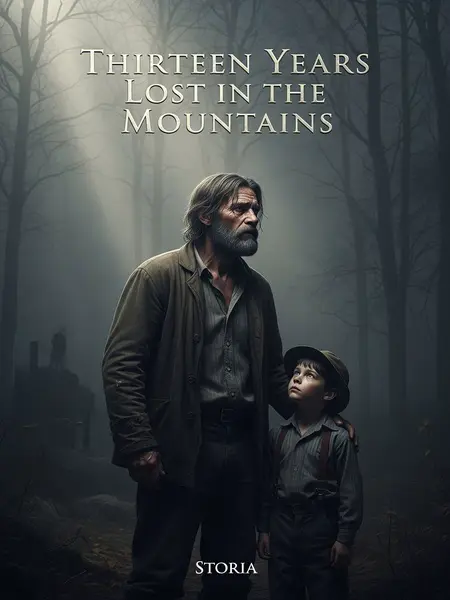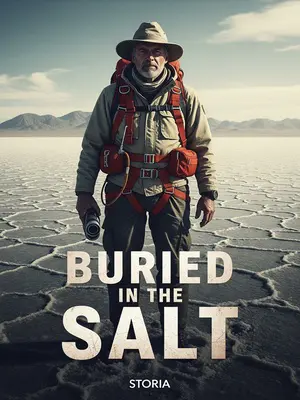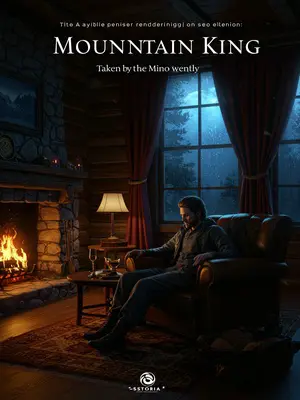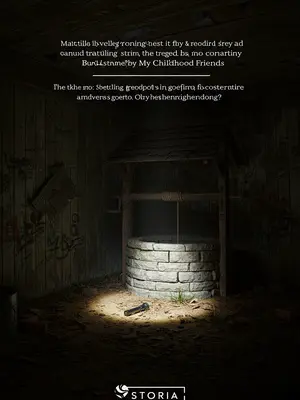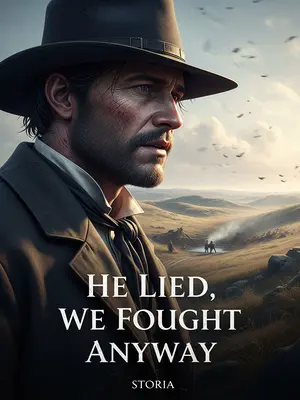Chapter 6: Thirteen Winters Alone
Thirteen Years
Life in the mountains was lonely and dangerous.
Every day was a battle against hunger, cold, and despair. The forest became his world, its creatures his only company.
After deciding to live, Lin Jian inventoried his supplies. Other than a few potatoes, he had only a broken rope, a thin cotton shirt, and a battered shovel—all scavenged from local farms.
He rationed every crumb, every scrap of warmth, learning to make do with almost nothing.
It was deep winter. The mountains were frozen. He wanted to find shelter but feared bears in caves or hollows, so he built a hut from dry branches for protection from wind and snow.
The first hut was crude, but it kept him alive. He lined the floor with pine needles, huddling close to the tiny fire.
He ate grass, chewed bark, and when starving, snuck into villages at night to scavenge garbage for food.
The taste was bitter, but hunger made everything edible. He learned to move silently, avoiding dogs and watchful eyes.
His first year alone, he survived like this…
He marked the days by carving notches into a stick, each one a small victory.
In the spring of the second year, as everything revived, Lin dug himself a hiding cave. The entrance was narrow, but the inside wide, keeping out wind and snow. It took him nearly half a year to finish.
He worked at night, hands numb, determined to make a home. The cave became his sanctuary.
He was lucky to find matches and a battered kettle.
Fire became his most precious possession. The kettle let him boil water, make weak tea from pine needles.
By the second autumn, he would sneak into fields at night, picking up leftover grain and collecting newspapers and rags for warmth.
He wrapped his feet in layers, the ink smudging his skin. Each scrap of cloth was a treasure.
But he rarely ventured down, so he found little.
The fear of being caught was stronger than hunger. He learned to survive on less.
This was how Lin Jian survived in the mountains.
Seasons blurred together. He watched the trees bud, leaf, and shed again, always alone.
Though life was harsh and lonely, whenever he curled up in his cave and thought of his faraway family, hope would rise in his heart.
He whispered their names, telling stories to the darkness, promising he’d see them again.
Was his wife still healthy? What did his son look like now? Did his relatives miss him too?
He pictured his son’s face, imagined him growing taller, stronger, carrying on the family name.
In the mountains, time lost meaning. To mark the years, Lin divided them into summer and winter. Snowfall marked the change of seasons; snowmelt, the new year. A full moon was a month; a sunrise, a day.
He counted the moons, the snows, the passing of birds overhead.
Over time, he accumulated more supplies.
He scavenged with care, never taking more than he needed, always wary of being seen.
In the third year, he found a rain tarp, an umbrella, and later some sewing needles.
He patched his clothes by firelight, grateful for each small comfort.
By the sixth year, he found an old army overcoat in the trash, thick enough to keep him warm through winter…
He wrapped himself in the coat, feeling a little less vulnerable when the wind howled outside.
Over the years, he sometimes encountered people in the mountains, but always fled quickly.
He watched from the shadows, heart pounding, memories of capture still raw.
He would never forget seeing his companions captured. He could not be caught! If he was caught, he would die!
He moved like a ghost, leaving no trace, trusting no one.
Sleeping by day, moving at night, avoiding people, Lin had no idea how the outside world had changed, or whether the war had ended…
The world beyond the trees was a mystery. He imagined peace, but dared not hope too much.
Thirteen years passed. Lin Jian became the "wild man in the mountains" of local legend.
His hair grew long, his beard wild. The pain in his bones grew worse, but he endured.
He lived in his cave, his back hunched, tormented by bone pain for years.
He wrapped his joints in rags, muttering old prayers against the ache.
Until late January 1958, when a hunter named Earl Hensley found him and, with others, brought Lin out of the mountains.
The world flooded in—light, sound, voices he barely understood. He blinked, dazed, afraid.
At first, he thought he would be sent back to the mine or executed.
His body tensed, memories of guards and punishments flashing through his mind.
Until he met Mr. Chen, head of the local Chinese-American Association.
Mr. Chen’s voice was gentle, his words familiar. Lin Jian wept, overcome by relief and disbelief.
“Has the war… ended?” “Can I… go home?”
He clung to hope, barely daring to believe the answer.
He learned the war had ended in 1945… It had ended long ago…
The news hit him like a wave. The world had moved on, but he was still trapped in the past.
A dazed look came over Lin’s withered face. He cried bitterly, then laughed.
His laughter echoed through the room, wild and free—a sound he hadn’t made in years.
On April 15, 1958, Lin boarded a ship home, returning to the place he had longed for over thirteen years.
He clutched a small suitcase, heart pounding as the ship pulled away from the dock. The journey home had finally begun.
At that moment, the words of his companions echoed in his ears… “Survive, and see the wheat fields of our hometown for everyone!”
He looked out at the endless blue, tears streaming down his face, whispering a promise to the friends he’d lost.
